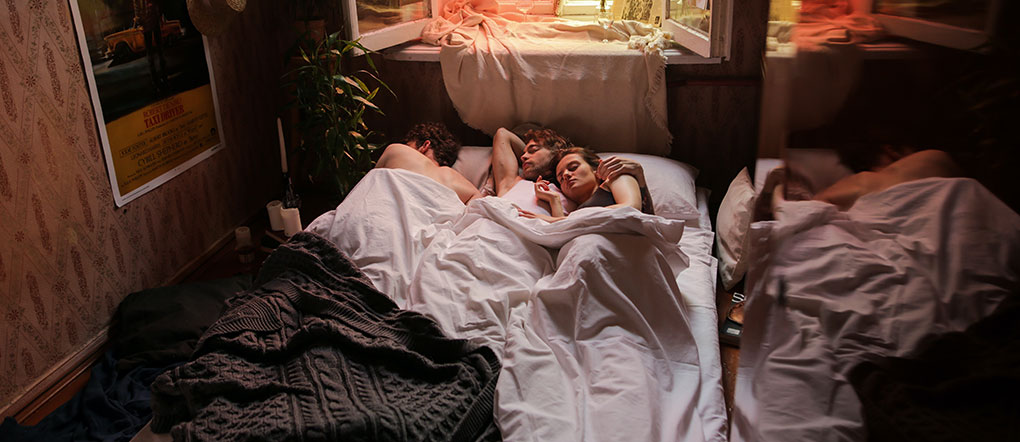While it wasn’t until 1973 that homosexuality was removed from the DSM, being gay seemed to always be understood as a real thing. Of course it was a real bad thing if you were a psychologist or psychiatrist working prior to 1973. But it was real.
The same cannot be said of bisexuality. As a term it’s been around almost as long, but bisexuality never received the same attention from medical researchers or social groups bent on keeping all humans as straight as possible.
At first glance it might appear as if bisexuality dodged a bullet. But it’s hard to see how this invisibility (which continues today) was much of a benefit.
A small but growing body of research is documenting the many negative impacts of this invisibility on people who self-identify as bisexual.
This research is also revealing that even today many people question whether or not bisexuality is a legitimate sexual orientation. While the answer is an easy one: a resounding yes! The challenge that it provokes is for us to think more carefully about what exactly makes an orientation legitimate.
Do numbers legitimize a sexual orientation? If an orientation is legitimized based on how many people self-identify with it, the next question would have to be how many people does it take to be legitimate? Is it real when there’s a conference? A parade? Is it a number or a ratio? In any case, the sheer volume of bisexuals shouldn’t be an issue, since according to at least one nationally representative survey of Americans there are more bisexuals than gay or lesbians.
So if homosexuality is legitimate, why not bisexuality?
Does science legitimize a sexual orientation? This too seems like a questionable requirement for something that ultimately is meant to be a term people use to describe how they feel and who they are. Why should we need scientists to legitimize our experience? We shouldn’t. But even if we did, bisexuality has been acknowledged and studied for decades. It usually receives less attention than other sexual orientations, but it’s got books, academic journals, college and university courses, and international conferences to its credit. If you care what scientists think, then doesn’t that matter?
Maybe it’s us. Do we legitimize a sexual orientation? Maybe people can’t acknowledge bisexuality as an orientation because it doesn’t “feel right” to them. They don’t “believe” it. It’s common in public discussions about bisexuality to hear people tell stories about knowing someone who identified as bisexuality but then it “turned out they were really gay“. And other people will say that they just don’t understand how you can be equally attracted to all genders. It doesn’t make sense to them. It’s not part of their experience. And guess what, those people usually aren’t bisexual (although, come to think of it, maybe some of them are).
Perhaps the most compelling explanation for how it is that people come to deny bisexuality as a lived experience and an appropriate self-identification is monosexism.
Monosexism describes the deeply ingrained beliefs, attitudes, and prejudices that suggest the right way to be sexual is to have one sex or gender that you are attracted to. Fooling around and experimenting is allowed in certain contexts (so young people may experiment and drunk people may “slip up“) but fundamentally being straight or gay or lesbian, in other words being able to describe your desired emotional, romantic, and sexual attractions and relationships as directed to only one sex or gender, is understood to be the norm and the norm is understood to be what’s healthy.
Monosexism is also sometimes called biphobia, a term that predates it, but as writer and activist Julia Serano so thoughtfully argues in her newest book, Excluded: Making Feminist and Queer Movements More Inclusive the term monosexism may be more useful for the way it highlights the systemic oppression and both material and social barriers for people who simply experience their sexuality as not fitting into a monosexual frame (if you’re interested you can read her chapter on bisexuality and monosexism on her blog, but the book is worth buying too!). Biphobia sounds more like it’s about people who are afraid of or simply don’t like or believe individual bisexual people. Monosexism says something more, something true, which is that the sexual rules we are meant to live by don’t reflect the sexual people we are.
Some might wonder why we need anything more than a group of people saying very clearly, this is something that describes our experience, this is a word we use for it, please just respect that. It can seem as if people who deny bisexuality to any degree are taking a defensive position, as if acknoweldging that some people’s desire for sexual, romantic, and emotional relationships are multidirectional invalidates other people’s experience which may be more unidirectional.
Since this attitude, according to research, is prevalent among gays and lesbians many of whom have been fighting for and celebrating success in achieving recognition of their relationships by the courts, it’s hard to see the difference between this and the belief that if gay people can marry it somehow ruins it for straight people. As if there’s only room on the planet for a limited number of ways of being in the world and experiencing the world and we have to police everyone to make sure that only the legitimate ways get acknowledged.
In the end sexual orientation is just a way of making sense of and describing human desire and relationships which will always defy simple description. It’s why there are good arguments for creating a new orientation to sex altogether.












